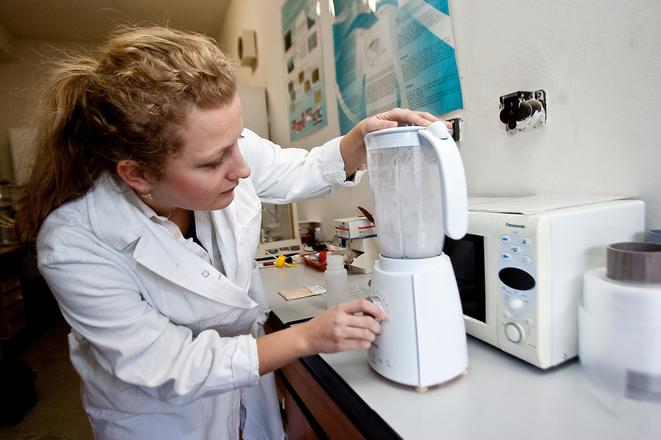Andrea Sadloňová is a Slovak-born scientist who returned home after 19 years in the USA.
Recently, I was at a meeting of the Slovak Academy of Sciences (SAV), which has been trying to rejuvenate scientific research in Slovakia and invited various Slovak-born scientists from home and abroad. I was a little bit disappointed that the SAV discussion lost its momentum in a minutia of complaints and discussions about money and lacked any words on the future of Slovak science.
Young scientists in Slovakia
I personally believe that without a vision and visible goals, all the money is wasted anyway. Is it justifiable to ask young students in Slovakia to dedicate their lives to science, when we cannot even support our current scientists and we do not value the complexity of scientific endeavour? Do we want our students to replicate a common path of scientists in the U.S. which involves a decade of education and practical research training, a decade for building research expertise, and another decade for becoming an established, well-funded and well-published scientist? Will we all live to 100 to see the benefits of our work? Do we want our students to run through this model only to find their work has no practical application in the Slovak economy, rendering their scientific expertise useless?
Science vs. politics
I am a representative of a mixed research climate in the U.S. During the 2000s, I benefited from the rich Clinton research period but experienced negative effects of the G.W. Bush era of decreased funding. After wars in the Middle East weighed down the federal budget, research money slowly thinned out and many of us stayed without prospective research jobs. In the U.S. we know that science is dependent on political mood, the president, potential wars, terrorists, and the economic climate. Countries are truly prosperous when they do not need to fight for their existence or safety, and take time to develop new ideas and solutions.
Freedom in research
Big research is a true privilege of very wealthy countries but countries like Slovakia can still prosper in science. Small countries with fewer resources just need to stay more focused on what can be done right now with the resources at hand. The bottom line in research is that scientists yearn for their independence, to develop their own ideas and to have the freedom to do so. A research system that provides this freedom generates the best research results. Needless to say, it was this kind of freedom that attracted scientists across the globe to America for most of the 20th century and led to discoveries that we benefit from today.


 (source: Sme)
(source: Sme)